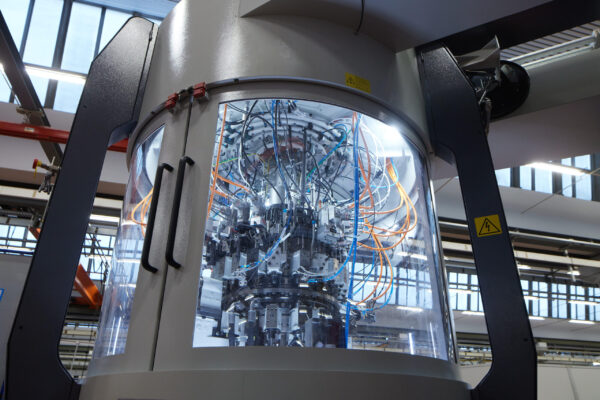Exhibit 1: Revenues FY21*
|
Exhibit 2: EBIT from business units* FY21
|

|

|
Source: BayWa. Note: *Excluding Innovation & Digitalisation segment.
|
Source: BayWa. Note: *Excluding Innovation & Digitalisation segment.
|
Exhibit 1: Revenues FY21*
|

|
Source: BayWa. Note: *Excluding Innovation & Digitalisation segment.
|
Exhibit 2: EBIT from business units* FY21
|

|
Source: BayWa. Note: *Excluding Innovation & Digitalisation segment.
|
The BayWa Group operates through three main business units: Energy, Agriculture and Building Materials, the results of which are now reported as seven segments, together with a smaller Innovation & Digitalisation segment. Five of the seven main segments reported growth in EBIT during FY21, contributing to a record performance for the group despite the continued effect of the coronavirus pandemic. The group appears in a good position for further growth in FY22 even though supply chains continue to be stretched and the Russian invasion of Ukraine is causing grave issues with the availability of key commodities.
We note that while growth in various segments during FY21 benefited from strong PV components trading (Renewable Energies), volatility in commodity pricing (Cefetra Group), the initial benefits of restructuring in the Agri Trade & Services segment and a construction boom in Germany (Building Materials), a longer-term view (see Exhibit 3) shows the Renewables Energies segment has been the primary driver of group growth. As discussed in our recent note on BayWa’s Energy business unit, the €530m equity investment in the Renewable Energies segment that was received during FY21 will enable management to accelerate growth, potentially boosting segmental EBIT from €135.0m in FY21 to over €170m by 2023. The investment will play a significant role in the group achieving management’s goal of group EBIT reaching €400–450m by 2025.
Exhibit 3: Segmental EBIT from business units FY17–21
|

|
Source: BayWa accounts. Note: *Adjusted
|
Energy business unit (€5,688.2m revenues, €152.4m EBIT FY21)
The Energy business unit has an international renewable energy business, BayWa r.e. (the Renewable Energies segment), which develops and sells solar and wind farms and, according to management estimates, is the largest distributor of PV systems in Europe and one of the top three in the United States. The business unit also has a conventional energy business (the Energy segment), which trades oil and lubricants in Germany and Austria.
Revenues from the Renewable Energies segment grew by 61% year-on-year during FY21 to €3,560.0m and EBIT by 22% to a record €135.0m, with the rise in both metrics exceeding management’s expectations. The segment sold a total of 13 wind and solar parks with a collective output of 612.8MW sold (FY20: 667.0MW), of which 203MW were located in Spain and 99MW in the United States. Some project sales were deferred to early 2022. Trading of PV modules increased by 73% to more than 2 gigawatt-peak (GWp) and trading of converters increased by 40% reflecting sustained high demand. The IPP (independent power producer) division had 19 wind and solar parks in Europe, North America and Australia in its portfolio with a total output of 0.7GW.
Management expects a significant (>20%) increase in segmental EBIT during FY22, with sales of solar and wind projects totalling 1.2GW capacity, some of which will be taken over by the IPP division. So far this year BayWa r.e. has sold the 265MW Corazon Solar Park in Texas. Demand for PV components continues to be high. Although there are still supply chain issues, the overall environment is favourable. The war in Ukraine is encouraging previously reluctant politicians to endorse wind and solar generation as an alternative to oil and gas from Russia. Since the number of regions where wind and solar generation has reached parity with conventional energy generation is increasing, the transition to green energy generation can be done without adversely affecting consumers, helping politicians effect the transition to green power.
Revenues from the conventional energy segment rose by 22% to €2,128.2m as a result of sharp rises in heating oil and fuel prices. EBIT fell by 45% from the previous year’s record to €17.4m. This drop was expected because consumers has taken advantage of low prices and VAT rates in 2020 to stock up on heating oil ahead of the introduction of carbon taxes and increase in VAT rates in 2021. In contrast, oil prices surged during FY21, depressing demand for heating oil. However, sales of wood pellets, which are treated as a carbon-neutral energy source and are therefore exempt from carbon taxes, grew by 23%, with rising demand supported by capacity expansion at BayWa’s two pellet plants in Wunsiedel during 2020.
Management expects segmental EBIT to be 5–10% lower than FY21 because the high prices for fuels and heating oil are likely to dampen demand even though price volatility presents opportunities for improving margin. However, sales of wood pellets are expected to show double-digit growth, boosted by further increases in carbon taxes in Germany. The acquisition of haulage company Heyne & Naumann in January 2022 for an undisclosed amount should help the segment support consumer demand more efficiently. The expansion of the LNG filling station network from four to nine sites during FY21 should contribute to revenues and earnings during FY22. BayWa intends to construct a further three LNG filling stations during FY22 and introduce bio-LNG.
Agriculture business unit (€12,044.7m revenues, €142.3m EBIT FY21)
BayWa’s Agriculture business unit is one of the leading agricultural commodities trading companies in the world with services including international trade and logistics of agricultural commodities and speciality products (Cefetra Group segment), the sale of agricultural inputs and feedstuffs (Agri Trade & Service segment) and agricultural machinery in Germany and Austria (Agriculture Equipment segment) and international fruit and vegetable trading (Global Produce segment).
The Cefetra Group segment’s revenues increased by 19% to €4,996.3m, primarily because of higher commodity prices since the volume of grain and oilseed traded fell by 5% to 21.8m tonnes because of the decision in 2020 to close a trading office in Hungary and the discontinuation of the export business in some regions of the Middle East. Segmental EBIT jumped by 80% to €38.8m reflecting a combination of commodity price volatility and expansion of the higher-margin specialities business.
Management expects to see significant (>20%) year-on-year segmental EBIT growth during 2022. The trading volume of standard products is likely to be similar to 2021 but there is potential for growth through the expansion of the specialities offer in 2021 to include dairy products and crops of African origin. The segment should benefit from the build-up of stocks in the Royal Ingredients specialities business, which will be marketed in 2022.
Agri Trade & Service Segment
Segmental revenues increased by 17% to €4,178.7m, primarily on account of the year-on-year rise in grain prices. EBIT moved from a €14.3m loss to a €12.3m profit. This improvement was a combination of the restructuring measures carried out during 2021 when 15 sites were closed as well as being able to sell produce harvested in 2020 at better trading margins, a sharp rise in fertiliser prices that enabled it to sell stock at a high margin and a warm and humid summer, which boosted herbicide sales.
Management expects a further significant (>20%) year-on-year increase in EBIT during 2022 as a result of the full year benefit from the restructuring programme. The volume of fertiliser sold is likely to fall a further 5% to 10% because of restrictions on the use of nitrogen and phosphate fertilisers as well as high prices, which are curbing demand. Nevertheless, the segment is in a positive position because it is likely that it will be able to sell inventories from the 2021 harvest at higher prices during H122.
The boom enjoyed in the Agricultural Equipment segment during 2020 did not continue in 2021. The 2% increase in revenues to €1,909.0m was attributable to price increases. Sales of new machinery were 16% lower than 2020, albeit at above the average for the previous five years, because farmers had brought forward purchases in 2020 to beat VAT increases. Moreover, component shortages resulted in a lack of availability of some machinery, postponing invoicing from 2021 to 2022. EBIT declined by 11% to €48.6m through a combination of lower new machinery sales and cost increases incurred under collective wage agreements.
Management expects segmental EBIT will decline significantly (>20%) during 2022 unless supply chain bottlenecks ease. Demand should remain buoyant because of good milk and grain prices and Bauernmilliarde subsidy measures for adapting agricultural practices in line with restrictions on the use of fertiliser. In addition, the segment entered the year with a very high order backlog. However, an increased shortage of skilled workers and the continuing bottlenecks in the provision of spare parts are likely to have a negative impact. EBIT could be similar to FY21 if supply constraints ease.
Global Produce segmental revenues rose by 2% to €960.7m. This growth was attributable to higher prices as the volume of produce marketed declined by 11% to 444,337 tonnes because of a large number of hail and heavy rainfall events, which affected the apple crop in Germany, and a lack of seasonal workers in New Zealand because of travel restrictions related to the coronavirus pandemic, which led to a reduction in the harvest. The €0.8m increase in EBIT to €42.6m was primarily attributable to one-off income (€13.0m) from the sale of surplus properties and the award of additional cultivation licences for Envy premium apples. As well as being adversely affected by lower volumes, profit margins were squeezed by high air and sea freight prices.
Given the size of the one-off income from the sale of surplus properties in 2021, management expects that segmental EBIT will be 5–10% lower year-on-year during 2022 even though earnings from underlying business activities will be higher. The total marketing volume is likely to be slightly higher because a better harvest is anticipated in New Zealand. Rising energy and logistics costs are expected to squeeze profit margins.
Building Materials business unit (€2,084.2m revenues, €73.2m EBIT FY21)
BayWa’s Building Materials segment offers an extensive range of building materials products and solutions for commercial and retail customers in southern Germany and Austria.
Revenues attributable to the business unit rose by 10% year-on-year during FY21 to €2,084.2m while EBIT jumped by 56% to €73.2m. There was sales growth across the entire product range, reflecting high-capacity utilisation in the German construction industry, where total order intake during 2021 was 9.4% higher than the previous year (source: Hauptverband der deutschen Bauindustrie). Demand for building construction, civil engineering and roofing products was particularly strong. Building materials prices rose sharply as a result of sustained strong demand internationally and shortages. For example, according to the Hauptverband der deutschen Bauindustrie, the association for large and medium-sized companies in the German construction industry,the price of reinforcing steel sheet jumped by 72% year-on-year in January 2022 and the price of timber by 59%. BayWa was able to deliver products with relatively little interruption because of its established supplier network and good inventory management, which helped it realise higher than usual margins. In addition, the projects activity benefited from sales in Burgkirchen, Seeon-Seebruck and Sauerlach. EBIT from construction projects during FY21 was c €5m compared with €2.4m in FY20.
Management expects that the building boom will slow down during 2022 because of a shortage of skilled workers as well as supply constraints for some construction materials. It therefore expects sales volumes to be similar to FY21, with price inflation driving revenue growth of around 3%. It expects that the residential construction segment will shift from new building activities to the modernisation and renovation of existing properties. While it expects the projects activity to start work on a large number of new projects, these will not generate meaningful earnings until 2023. Given cost pressures, management expects segment 2022 EBIT to be substantially (10–20%) below the previous year’s high level.

















